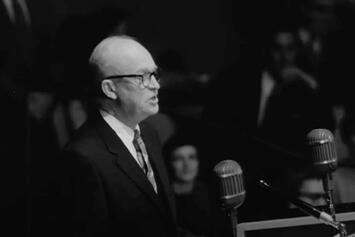
There’s a vast difference between politics and policy. Doing politics — making speeches, giving TV interviews, and drafting talking points — is child’s play. Policy, on the other hand, is where dreams go to die, particularly when it comes to energy.
Over the past few days, the politics and policies around nuclear energy have shifted faster than at any other period in the post-Chernobyl era. Here are a few examples:
Germany, the world’s long-time anti-nuclear poster child, just did a screeching U-turn. Under its new chancellor, Friedrich Merz, Germany will cooperate with France and treat nuclear as a “green” power source under EU regulations. The move comes just 25 months after Germany took its last three nuclear plants offline. As one German official said, the move is a “sea-change policy shift.”
The announcement from Berlin came just days after Belgium’s federal parliament voted by a large majority to repeal a 2003 law mandating the phase out of nuclear energy and banning the construction of new reactors.
Last week, the Danish government announced it was reconsidering its ban on nuclear power, which has been in place since 1985. The country’s former prime minister, Anders Fogh Rasmussen, told the Financial Times, “Wind and solar are good as long as you have wind and sunshine. But you have to have a non-fossil base-load and it’s ridiculous to exclude nuclear power.”
On May 13, Massachusetts Governor Maura Healey (a Democrat) announced a plan to repeal a state law passed by voters in 1982. Healey’s administration is pointing to a recent report by ISO New England, which found that nuclear power can reduce emissions more cheaply than wind and solar (Gee, who would’ve thought that?) Further, the move comes as offshore wind, which a few months ago was the darling of East Coast Democrats, is slowly sinking under the weight of market realities and political headwinds.
In March, Colorado Governor Jared Polis (a Democrat) signed a bill into law that allows nuclear to count as a “clean” resource to meet the state’s decarbonization mandates. As the Energy Bad Boys, Isaac Orr and Mitch Rolling, noted last month, Polis signed the bill despite his 2019 campaign promise to run the state solely on wind, solar, batteries, and a soupçon of fairy dust.
Read the rest of this piece at Robert Bryce Substack.
Robert Bryce is a Texas-based author, journalist, film producer, and podcaster. His articles have appeared in a myriad of publications including the Wall Street Journal, New York Times, Forbes, Time, Austin Chronicle, and Sydney Morning Herald.
Photo: President Dwight Eisenhower delivered his Atoms for Peace speech at the UN on December 8, 1953. Credit: IAEA/YouTube.












